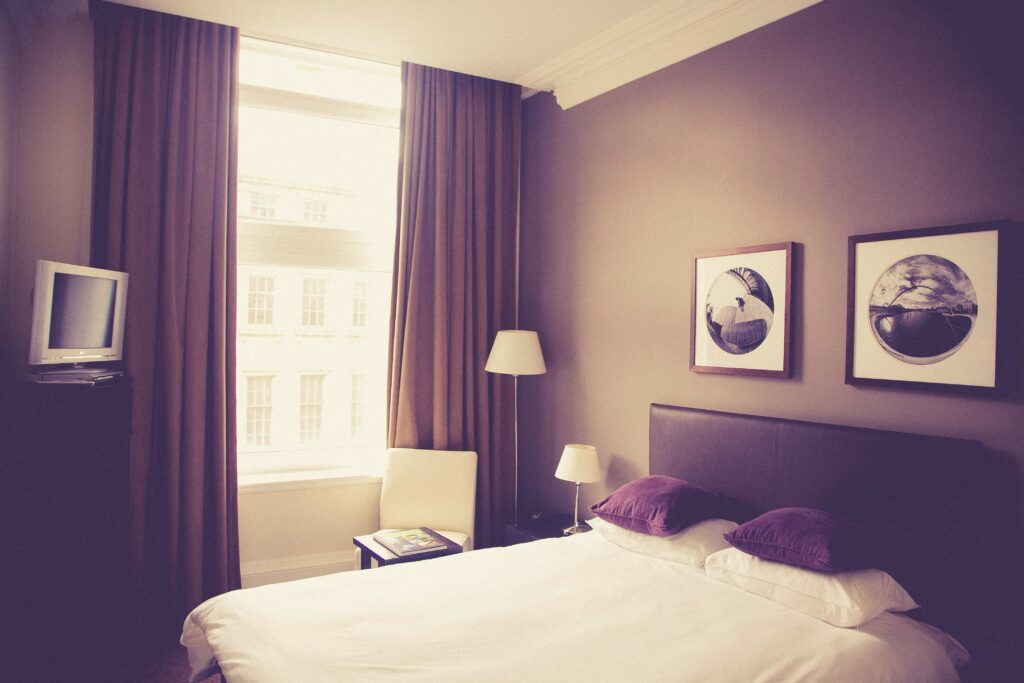Introduction to the Evolution of Hospitality
Welcome to the fascinating world of hospitality, where the art of making travelers feel welcome has undergone a remarkable evolution over the years. From humble inns to sprawling grand hotels, this industry has continually adapted and transformed to cater to the changing needs and desires of guests. As technology progresses and sustainability becomes paramount, hotels and resorts have embraced innovation while still prioritizing personalized experiences.
Join us on a journey through time as we explore how hospitality establishments have evolved from simple lodgings to luxurious havens for weary travelers. Discover how advancements in technology have revolutionized guest experiences, how eco-friendly practices are reshaping the industry, and most importantly, how hotels are adapting amidst these challenging times.
So grab your virtual suitcase and let’s embark on an exciting exploration of The Evolution of Hospitality!
The Early Days of Hospitality: From Inns to Grand Hotels
The Early Days of Hospitality: From Inns to Grand Hotels
Step back in time and imagine a world without Airbnb or luxury resorts – a simpler era when hospitality began in humble inns along dusty roads. These early establishments were more than just places to rest weary heads; they provided a sense of community for travelers seeking respite from long journeys.
In the 18th century, coaching inns dotted the landscape, offering shelter and sustenance to weary travelers and their horses. These rustic havens provided basic amenities such as food, drink, and a place to sleep – essential comforts after days spent traversing rough terrain.
As travel became more accessible with the advent of railways and steamships, grand hotels emerged as symbols of prestige and opulence. The likes of The Ritz in Paris or The Plaza Hotel in New York City beckoned the elite with lavish interiors, impeccable service, and extravagant amenities.
These grand hotels incorporated luxurious features like ornate chandeliers, marble floors, fine dining restaurants, ballrooms for social gatherings, and even private bathrooms – unheard-of luxuries at that time! Travelers reveled in these indulgences while immersing themselves in the vibrant cultures surrounding these iconic establishments.
Hospitality continued its evolution through advancements such as air conditioning systems introduced by Willis Carrier (yes! That’s where air conditioning comes from!) which made it possible for hotels to provide comfortable stays year-round regardless of weather conditions. This innovation truly transformed the industry!
With each passing decade came new technologies that revolutionized hospitality – telephones connected guests instantly to hotel services; television sets entertained tired souls after long days exploring new cities; internet access brought about connectivity on an unprecedented scale!
However, it was not only technology that changed over time; traveler needs evolved too. Today’s modern guest seeks personalized experiences tailored specifically towards their preferences. Hotels now offer customized packages catering to diverse interests ranging from wellness retreats to adventure-filled escapades.
Another significant shift in recent years has been the focus on sustainability and eco
The Rise of Luxury and Amenities in Hospitality
The Rise of Luxury and Amenities in Hospitality
Luxury and amenities have become synonymous with the modern concept of hospitality. The days of simple accommodations are long gone, as hotels and resorts now strive to provide a luxurious experience for their guests.
One key aspect of this rise in luxury is the focus on opulent surroundings. From lavish furnishings to breathtaking architecture, hotels and resorts spare no expense when it comes to creating a visually stunning environment for their guests. Every detail is carefully curated to exude elegance and sophistication.
In addition to aesthetics, luxury hotels also prioritize comfort. High-quality linens, plush mattresses, and state-of-the-art technology ensure that guests feel pampered during their stay. Spa-like bathrooms complete with luxurious toiletries further enhance the sense of indulgence.
Amenities play a crucial role in enhancing the overall guest experience as well. Hotels now go above and beyond traditional offerings by providing an array of facilities such as world-class restaurants, rooftop bars with panoramic views, fully equipped fitness centers, rejuvenating spas, infinity pools—the list goes on! These amenities not only cater to guests’ needs but also elevate their stay into something truly exceptional.
To keep up with changing traveler preferences, luxury hotels are constantly innovating and introducing new services. Personalized concierge services that cater to individual preferences are becoming increasingly popular. Some establishments even offer unique experiences like private cooking classes or personalized guided tours tailored specifically for each guest.
The rise of social media has also played a significant role in shaping the expectations around luxury travel experiences. Today’s travelers seek Instagram-worthy moments at every turn—whether it be enjoying a gourmet meal at an award-winning restaurant or lounging by an infinity pool overlooking breathtaking scenery.
As competition grows fiercer within the industry, luxury hoteliers continuously push boundaries by offering exclusive perks such as private airport transfers or access to members-only areas within their properties. These added privileges create an air of exclusivity that appeals to discerning travelers seeking the ultimate luxury experience.
The rise of luxury and amenities in
Technological Advancements in the Industry
Technological advancements have played a significant role in shaping the hospitality industry over the years. From simple booking systems to cutting-edge smart hotel rooms, technology has revolutionized the way hotels and resorts operate.
One of the most noticeable technological advances is the integration of mobile apps and online platforms into hotel operations. With just a few taps on their smartphones, guests can now book accommodations, check-in/out, access room keys, order room service, and even control in-room amenities. This convenience enhances guest experiences by providing instant access to services at their fingertips.
Another area where technology has made its mark is in improving communication between staff members and guests. Hotel management software allows for seamless coordination among different departments like housekeeping, maintenance, and concierge services. This streamlines operations and ensures that guest requests are addressed promptly.
In recent years, there has been an increasing emphasis on leveraging data analytics to gain valuable insights about customer preferences and behaviors. Hotels can now use this data to personalize guest experiences based on individual preferences such as room temperature settings or preferred dining options.
Furthermore, technological advancements have also enhanced security measures within hotels. Keyless entry systems using RFID or Bluetooth technology eliminate the need for traditional keycards while ensuring greater security for guests’ belongings.
As technology continues to advance rapidly, we can expect further innovations such as virtual reality (VR) tours of hotel properties before making a reservation or augmented reality (AR) applications that enhance guests’ experiences during their stay.
With these developments driving change across the industry’s landscape,
it’s clear that embracing technology will be crucial for hotels and resorts looking to meet travelers’ evolving needs effectively.
Technology will undoubtedly continue to play an integral role in enhancing efficiency,
improving personalization,
and ultimately shaping future trends in hospitality.
So get ready for a tech-driven experience during your next hotel stay!
Shift Towards Personalized Experiences
Shift Towards Personalized Experiences
Gone are the days when hospitality was a one-size-fits-all industry. Travelers today crave unique and personalized experiences that cater to their individual needs and preferences. Hotels and resorts have recognized this shift, and are now going above and beyond to deliver customized stays that leave a lasting impression.
One way hotels have embraced personalization is through technology. From the moment guests book their stay, they can provide information about their preferences – be it room temperature, pillow type, or even dietary restrictions. This data allows hotels to tailor every aspect of the guest experience, from room amenities to dining options.
But personalization doesn’t stop with technology. Hotels are also focusing on creating meaningful connections with their guests. This means going beyond simply greeting them by name upon arrival. It involves understanding their interests and offering tailored recommendations for local attractions, restaurants, and activities.
Furthermore, many hotels now offer bespoke services such as personalized spa treatments or curated experiences based on guests’ hobbies or passions. Whether it’s arranging a private cooking class with a renowned chef or organizing an exclusive tour of local art galleries, these experiences create memories that go far beyond just a comfortable bed.
And let’s not forget about loyalty programs! Many hotels now offer rewards programs that allow frequent visitors to enjoy special perks like complimentary upgrades or access to exclusive events. These programs not only incentivize repeat business but also enhance the overall guest experience by recognizing individual preferences.
The shift towards personalized experiences in hospitality has transformed the industry into one where each guest feels valued as an individual rather than just another customer passing through. By harnessing technology, fostering genuine connections, offering bespoke services, and implementing loyalty programs; hotels are successfully catering to travelers’ desire for tailored stays that make them feel truly special.
Sustainability and Eco-Friendly Practices in Hospitality
Sustainability and Eco-Friendly Practices in Hospitality
As travelers become more conscious of their environmental impact, the hospitality industry has had to adapt to meet these changing expectations. Hotels and resorts around the world are embracing sustainability and implementing eco-friendly practices to reduce their carbon footprint.
One way hotels are going green is by adopting renewable energy sources such as solar power or wind turbines. By harnessing natural resources, they can decrease reliance on fossil fuels and significantly reduce greenhouse gas emissions.
Water conservation is another important aspect of eco-friendly practices in hospitality. Many hotels now have systems in place to recycle water, use low-flow fixtures, and encourage guests to participate in towel reuse programs. These efforts not only conserve water but also save energy associated with heating it.
Furthermore, many establishments are taking steps towards reducing waste by implementing recycling programs throughout their facilities. From paper products to plastic bottles, hotels are finding creative ways to repurpose or recycle materials that would otherwise end up in landfills.
In addition to resource conservation, sustainable dining options have also gained popularity within the industry. Hotels have started sourcing locally grown produce for their restaurants, supporting local farmers while minimizing transport emissions associated with importing food from distant locations.
Eco-tourism initiatives have also become a significant trend within the hospitality sector. More properties offer nature-based activities that allow guests to explore nearby ecosystems while promoting conservation efforts and education about local flora and fauna.
Sustainability and eco-friendly practices continue to shape the evolution of hospitality as travelers increasingly prioritize responsible tourism choices. By incorporating environmentally conscious strategies into operations, hotels and resorts not only contribute positively towards a greener future but also attract like-minded guests who appreciate these efforts.
Adapting to Changing Traveler Needs During COVID-19
Adapting to Changing Traveler Needs During COVID-19
The global pandemic has undoubtedly reshaped the way we travel and stay in hotels. As travelers grapple with uncertainty and safety concerns, the hospitality industry has been quick to respond and adapt to these changing needs.
Hygiene protocols have become a top priority for hotels worldwide. From enhanced cleaning procedures to implementing social distancing measures, hotels are taking every step possible to ensure a safe environment for their guests. Hand sanitizing stations have become ubiquitous, and contactless check-in and check-out processes have emerged as new norms.
Flexibility in booking policies is now more important than ever before. Hotels are offering free cancellations or rebooking options to ease travelers’ worries about potential changes in their plans due to unpredictable circumstances.
Technology has played a vital role in meeting traveler needs during this time. Mobile apps enable guests to control various aspects of their stay without unnecessary physical contact. Virtual tours allow travelers to explore hotel amenities remotely before making a reservation.
Wellness offerings have gained prominence as people prioritize self-care while traveling amid the pandemic. Many hotels now offer fitness centers equipped with state-of-the-art equipment or outdoor activities that promote health and well-being.
Adapting quickly and effectively has been crucial for the hospitality industry during COVID-19. By prioritizing cleanliness standards, embracing technology solutions, providing flexible booking options, and focusing on guest well-being, hotels continue striving towards meeting changing traveler needs in these challenging times
Future Predictions for the Evolution of Hospitality
Future Predictions for the Evolution of Hospitality
As we stand at the cusp of a new era in hospitality, it is important to consider the future and how hotels and resorts will continue to adapt to meet travelers’ changing needs. Here are some predictions for what lies ahead:
1. Emphasis on Technology: The integration of technology into every aspect of the guest experience will only increase. From contactless check-ins to in-room automation, hotels will invest in cutting-edge technologies that enhance convenience and personalization.
2. Rise of Sustainable Practices: Environmental consciousness has become a priority for travelers, and hotels are taking notice. Expect more eco-friendly initiatives such as energy-efficient systems, waste reduction programs, and sustainable sourcing practices.
3. Shift towards Wellness: With an increasing focus on health and well-being, hotels will evolve to offer comprehensive wellness experiences. This could include dedicated spa facilities, fitness centers with state-of-the-art equipment, healthy dining options, and mindfulness activities.
4. Personalized Experiences: In an effort to cater to individual preferences, hotels will continue to provide tailored experiences through data analysis and personalized recommendations. Guests can expect customized amenities based on their past stays or specific preferences.
5. Integration of Artificial Intelligence (AI): AI-powered chatbots or virtual concierges may become commonplace in hotel operations for faster response times and enhanced efficiency throughout a guest’s stay.
6. Collaboration with Local Communities: Hotels are recognizing the importance of supporting local communities by partnering with local businesses or artisans for unique offerings that showcase regional flavors or cultural experiences.
7.
New Travel Trends Emerging from COVID-19: The global pandemic has had a profound impact on travel trends which may shape the future evolution of hospitality industry significantly even after things return back normalcy completely – such as increased demand for outdoor spaces/activities like open-air dining areas or rooftop gardens; emphasis on cleanliness protocols; flexible booking policies; remote work-friendly accommodations; etc.,
The evolution of hospitality has come a long way since the humble beginnings of inns and grand







